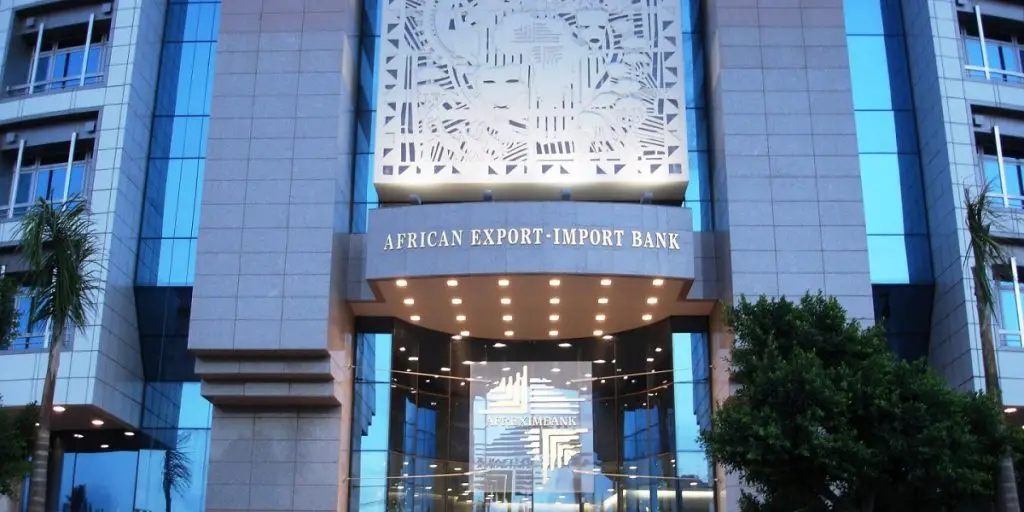- Africa’s new dawn: the rising role of digital and AI in agriculture
- Can Dangote Refinery Transform Africa Energy Ambition
- Gallup Survey: 80 per cent of Kenyan Workers Are Disengaged and Seek New Opportunities
- Madagascar Man Freed from 5KG Tumor After 15-Year Struggle
- How women in Africa are perceived and treated
- Sugar consumption in Kenya to Increase to 1.23 Million Tonnes
- Can Somalia and Turkey Oil deal Bring Change in Somaliland
- Remittances to Kenya dropped to $371.6 million in June, marking a six month low
Browsing: Insurance sector
- Afrexim’s subsidiary, AFREXInsure, will manage trade and commerce-related risks in Africa.
- AFREXInsure will leverage its risk expertise using its continent-wide presence.
- Cargo handling, construction, operations and energy sectors are on target.
The African Export-Import Bank has launched its wholly owned insurance management services subsidiary, AFREXInsure.
The new subsidiary aims to offer a single point of entry for all speciality insurance requirements to help manage associated risks for African trade and commerce. The insurance arm of the bank will offer quality, best-in-breed specialty insurance that are tailor-made for Africa.
With credible knowledge of Africa, AFREXInsure will leverage on its risk expertise using its continent-wide presence and deep understanding of the African market to provide solutions around cargo handling, construction, operations and energy – sectors critical for the growth and establishment of trade and investment intercontinentally.
AFREXInsure targets specialty risks
Speaking during the launch, which took place on the sidelines of Afreximbank’s …
The Marine Insurance Act Cap 390 of the Laws of Kenya defines a contract of marine cargo insurance as a document whereby the insurer undertakes to indemnify the assured, in a manner and to the extent thereby agreed, against the losses incident to any movable property other than ship including money and other valuable securities.
Marine insurance however, does not offer any coverage in cases like loss or damage due to willful acts of negligence and misconduct, loss or damage due to delay, or loss or damage due to improper packing. Other incidents excluded from the cover are , financial default or insolvency of owners, charterers, managers, or operators of the vessel, loss or damage due to wire, strike, riot, and civil commotion, loss or damage arising from the use of nuclear fission, weapon, or any other radioactive force, one quarter of cargo in case of collision damage, damage caused …
The post-Covid-19 era will not be good for the economy, especially the insurance sector. The economy has taken a beating and premiums are not being paid leading to lapsing of policies. Cars are not being imported therefore motor insurance premiums are being lost. Premiums from travel insurance are not being realized because airlines have been grounded…the situation can only get worse.
Moreover, coupled with that are the moribund laws being enacted in the insurance sector deliberately crippling insurance intermediaries. The recent passing of the Tax Laws (Amendment) Act 2020 ostensibly to take care of the small man was anything but. Value Added Tax (VAT) was introduced to insurance intermediaries leading to them being the most taxed group in Kenya seeing that they are paying withholding tax and income tax at the same time.
No one bothers to find out the stakeholders’ views on these laws and the regulator needs to …
It is common knowledge that for an economy to fully develop its insurance industry must be robust and dynamic to meet all the challenges in that economy. This includes but is not limited to developing products suited for the particular economy, and developing products fast. The industry must think on its feet.
Other factors also come into play and all these complement one another so as to achieve the overall growth target of the industry. One of the most important drivers of insurance penetration is the intermediaries comprising of agents and brokers. They are the vital link that connects the consumers of insurance products and the sellers of the same. Suffice to say that without this vital link in the industry the penetration of insurance would be minimal or negligible and the two point four three percent we boast about and the ranking of Kenya as among the top six …
An insurance company can settle a claim in a number of ways namely repair your vehicle, compensate you in cash in case of total loss or give you cash to repair your car in case you insured on a comprehensive basis. The insurance company giving you cash to settle an accident repair job is called cash-in-lieu in insurance parlance. Section 203 of the Insurance Act Cap 487 tackles the issue of claims settlement.
Ideally insurance companies should be giving you cash to repair your vehicle and they should not be running garages or appointing garages to repair your vehicle. This is because their responsibility stops with them compensating you cash for your loss and itis your business to seek a repairer of your choice. This in turn removes them from all manner of problems like legal liabilities in case of poor repair of vehicles if they so authorized. It also …





